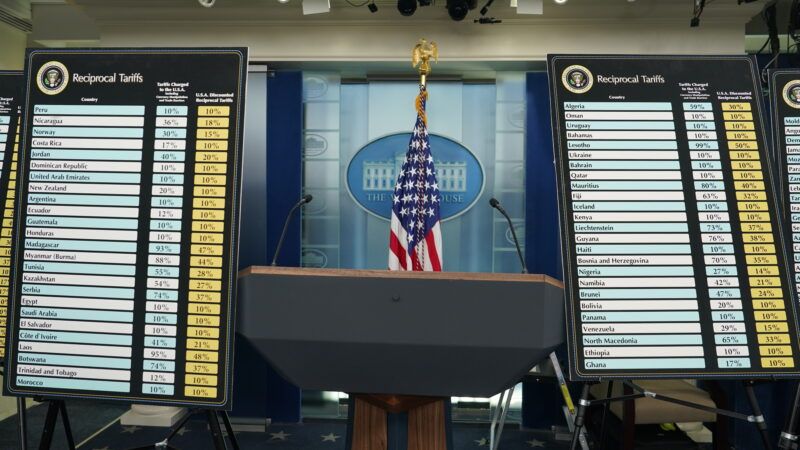How Trump's New Tariffs Will Make Farming (and Food) More Expensive
Trump's first trade war cost farmers $27 billion. Losses this time around could be higher.

Americans love foreign products, but is our indulgence in Canadian whiskey, Mexican avocados, and Brazilian coffee a bad thing? If you ask President Donald Trump, the answer is unequivocally, yes. On Wednesday, the president announced a baseline 10 percent tariff on products from 180 nations, including higher rates for certain countries the president considers bad actors.
These duties will negatively affect the agricultural sector, which relies heavily on trade. Despite exporting over $175 billion worth of agricultural products (the third-highest level on record), imports outpaced exports in 2024.
If history is any indicator, farmers are sure to pay for Trump's trade war. During the first Trump administration, retaliatory tariffs on American goods led to $27 billion in losses to agricultural exports, according to the U.S. Department of Agriculture, most of which was caused by lost trade with China.
This time around, the damage could be more severe. Wednesday's announcement elevated tariffs on three of America's five largest agricultural trading partners—China (34 percent), the European Union (20 percent), and Japan (24 percent). Mexico and Canada, which are America's two largest trading partners, were exempt from the list but have faced 25 percent duties on certain products since March.
Together, these five markets account for more than 60 percent of American agricultural exports and retaliatory tariffs have already been enacted by some. China has implemented a 10 percent to 15 percent tariff on American soybeans, cotton, pork, and poultry. In March, Canada announced retaliatory tariffs on a number of American goods, including $5.8 billion worth of agricultural products. The European Union, meanwhile, is considering a suite of tariffs that will impact the agricultural sector.
As these tariffs make it harder for American farmers to access foreign markets, thus decreasing revenue, they could also increase production costs and the price of fertilizer, which is one of the largest expenses involved in farming. Imports of the three most commonly used nutrients in fertilizers—potassium (potash), nitrogen, and phosphorus—topped $10 billion in 2023, $5 billion of which came from Canada. Potash, which "is an irreplaceable component of modern agricultural production," according to the Fertilizer Institute, is sourced predominantly from Canada. Nitrogen, meanwhile, is imported mainly from Canada (the country meets 10 percent of American nitrogen needs), Russia, and Trinidad and Tobago (10 percent tariff).
Trump's announcement retains the 10 percent levy on Canadian potash that doesn't comply with the U.S.-Mexico-Canada trade agreement. The president has also tapped emergency powers to increase domestic production of potash, but the move is unlikely to reduce import dependency for the mineral.
With farmers facing higher production costs and imported products being taxed, consumers can expect food prices to rise.
Since the bird flu outbreak, the U.S. has imported eggs from Turkey, which has already shipped 15,000 tons of eggs to America this year. Under the new tariffs, eggs imported from Turkey will face a 10 percent tax. The cost of importing bananas from Guatemala (10 percent tariff), instant coffee from Vietnam (46 percent tariff), vanilla from Madagascar (47 percent tariff), and many other goods will also rise. With grocery stores operating on low profit margins, these costs will inevitably be passed down to American shoppers.
The damage that this policy will cause is not lost on the Trump administration. On Monday, Agriculture Secretary Brooke Rollins told the Des Moines Register that her agency is ready to make farmers affected by tariffs "whole" through cash assistance programs. Under the first Trump administration, the Agriculture Department also hedged against its poor trade policy by issuing $28 billion in bailouts to farmers.
Monetary compensation may provide farmers a reprieve, but it will be at the expense of taxpayers, who are going to have to pay more for their favorite products because of Trump's trade war.


Show Comments (30)